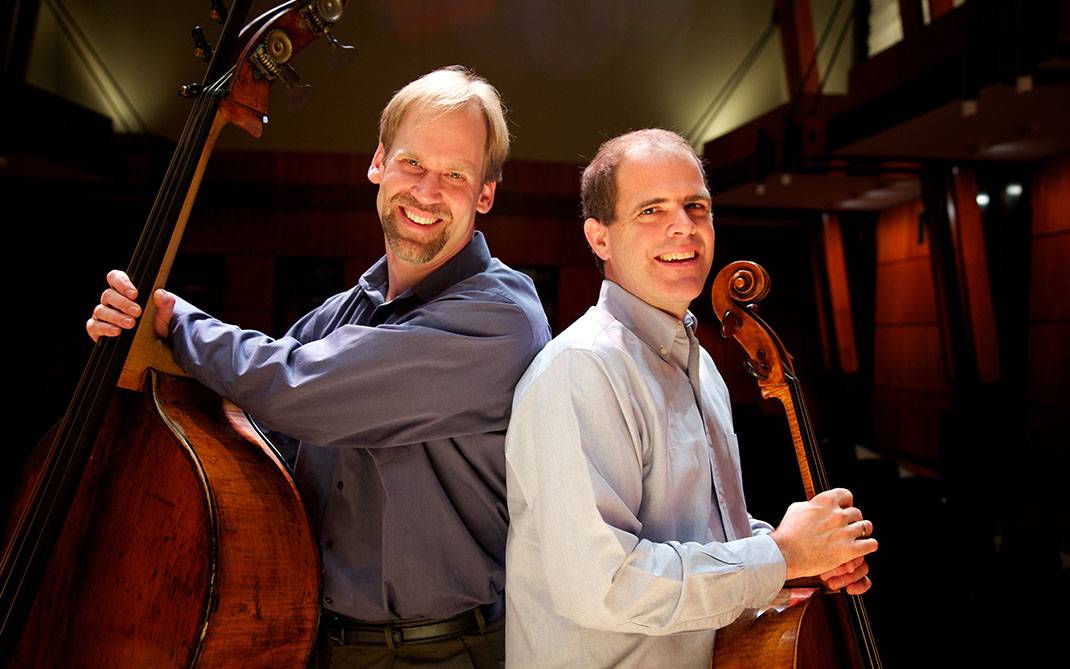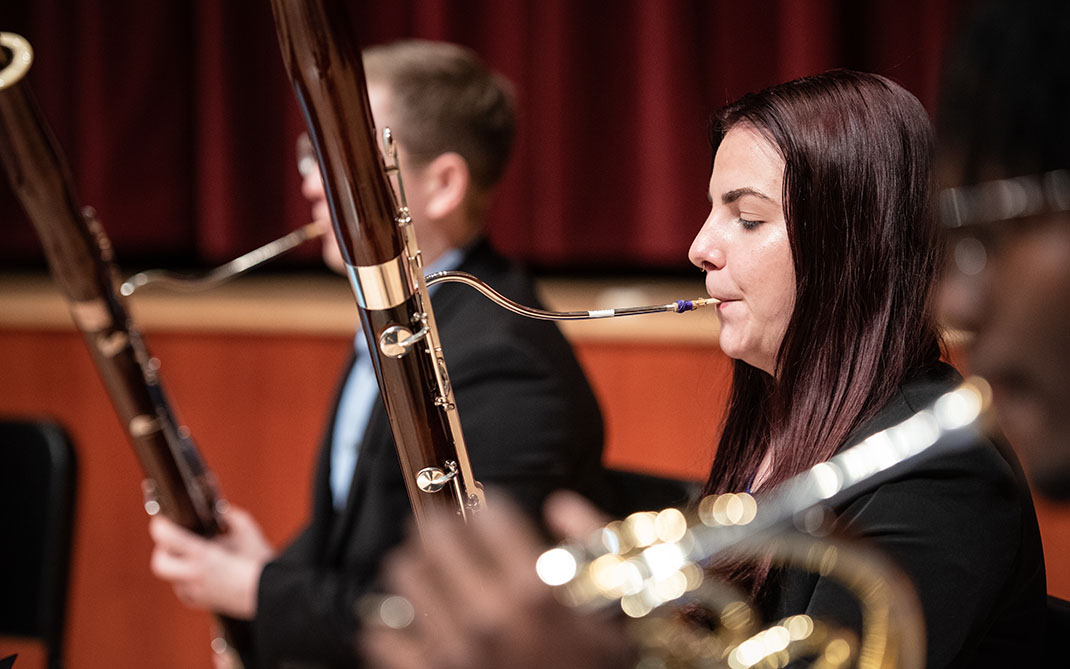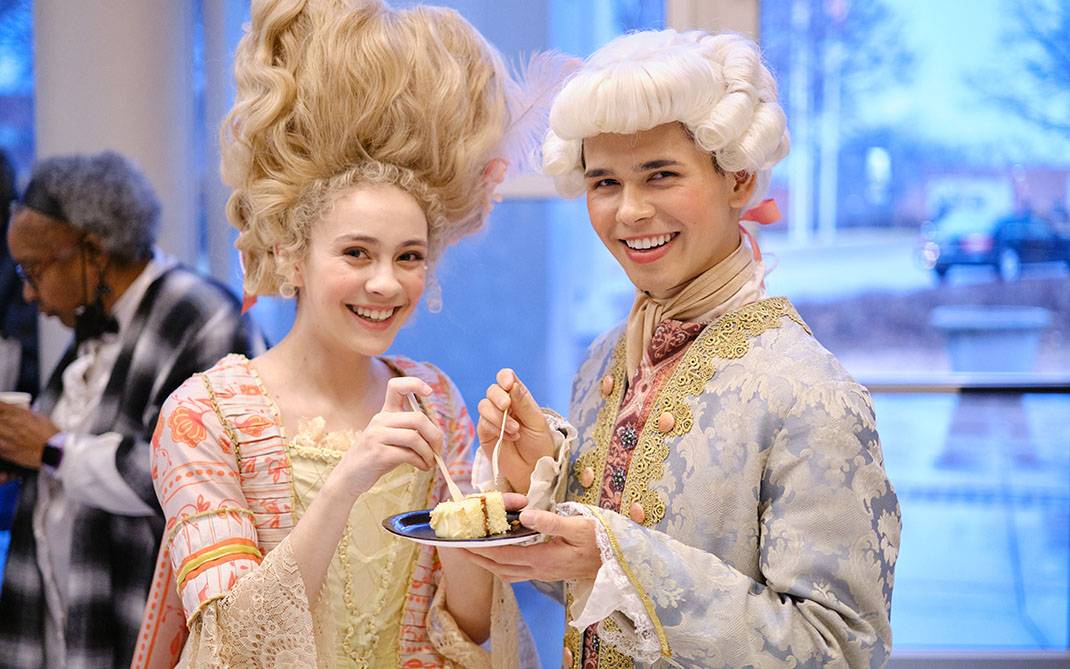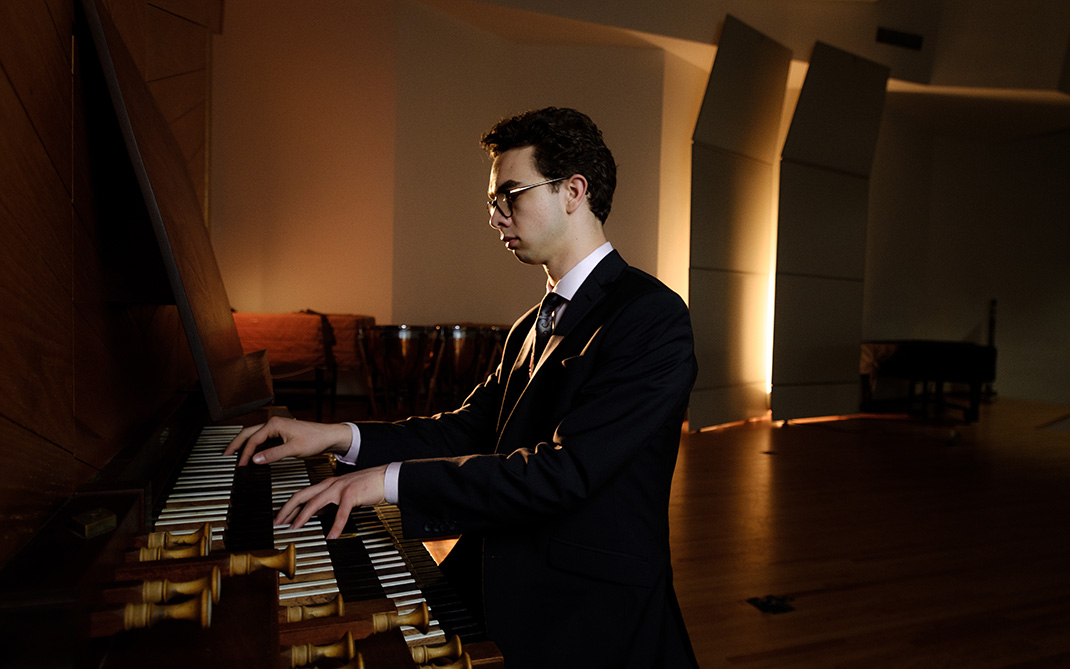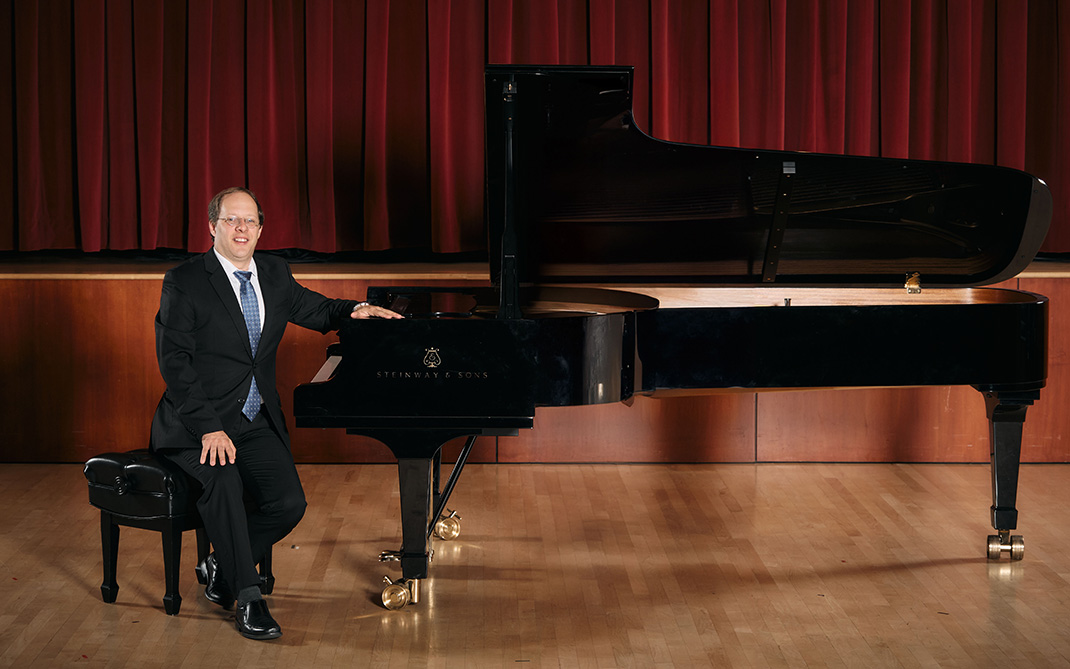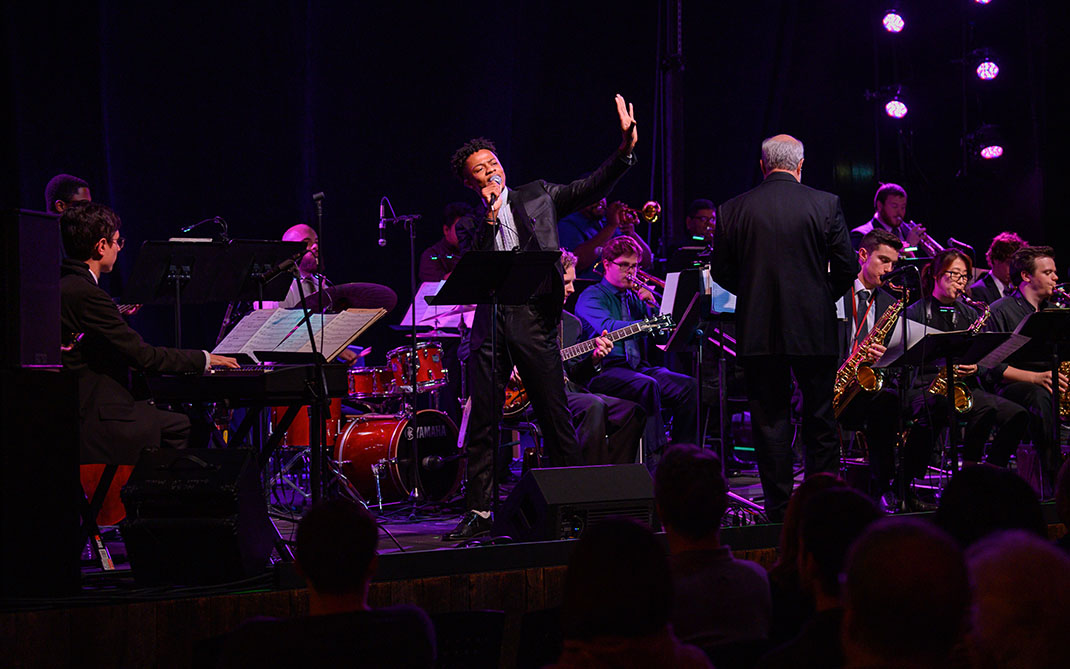UNCSA's Fletcher Opera Institute presents Claude Debussy’s intricate opera “Impressions de Pelléas”
This month the School of Music at the University of North Carolina School of the Arts (UNCSA) brings to life the story of a tragic love triangle. UNCSA’s award-winning A.J. Fletcher Opera Institute presents Claude Debussy’s intricate “Impressions de Pelléas” using new orchestration in an adaptation by famous British director Peter Brook.
“Impressions de Pelléas” will run for three performances: 7:30 p.m. on Wednesday, April 18 and Friday, April 20, and 2 p.m. on Sunday, April 22 in Agnes de Mille Theatre on the UNCSA campus, 1533 South Main St. in Winston-Salem.
Tickets are $25 regular and $20 students with valid ID, and are available online or by calling the box office at 336-721-1945.
Based on a story by Belgian playwright Maurice Maeterlinck, “Impressions de Pelléas” is actually a reduced version of Debussy’s original opera. In 1992, Brooks shortened the five-act opera to 100 minutes with no intermission, cut the full orchestra down to just two pianos, and retitled the work.

Eliza Mandzik performs the role of Mélisande.
UNCSA has added its own touches to Brooks’ take on the opera. The two pianos will be bolstered by flute, cello and percussion – all sitting on stage during the show. The numerous locations called for in the script will all be represented in a single environment. Lighting will be used to break up that space into the various scenes.
“The time setting we have chosen is a post-apocalyptic dystopia,” says Director Nic Muni, who also serves as artistic director for the Fletcher Opera Institute. “It’s slightly futuristic but with a primitive look – a combination of ‘Game of Thrones,’ ‘Mad Max’ and ‘Lord of the Rings.’”
Muni describes “Impressions de Pelléas” as a ‘sung play.’ “It’s not as much an opera as a play with music, so it stretches our singers in terms of their acting ability.”
The opera has three central characters: Prince Golaud; his half-brother Pelléas; and Mélisande, a mysterious woman with an unknown past.
“Mélisande is as magnetic as she is enigmatic,” says soprano Eliza Mandzik, who shares the role with soprano Claire Pegram in UNCSA’s production.
“Golaud encounters her sobbing in the forest, is instantly captivated by her, and brings her back to the kingdom of Allemonde as his bride.”
As Mélisande settles into her new home, she “forges a particularly powerful connection with Golaud’s half-brother Pelléas,” which fills Golaud with uncontrollable jealousy and paranoia.
“Toward the end of opera, in a moment of unleashed passion, Golaud kills his brother when he discovers him alone with Mélisande,” says Muni. “However, it is not at all clear [in the opera] whether Pelléas and Mélisande are guilty of infidelity.”
This type of ambiguity is pervasive in “Impressions de Pelléas.” Take Mandzik’s character, for example.
“Mélisande is a tangle of contradictions,” Mandzik says. “She is a mysterious being who hungrily takes in every detail while revealing nothing about herself.”
“She draws people in to her with an allure that verges on supernatural, yet this appeal seems entirely unconscious on her part. She is straightforward with her words, but the subtext belying them is often obscured.”
The singers have to intimately understand their paradoxical characters in order to portray to the audience what Mandzik calls “the carefully-constructed ambiguity that makes the story so electrifying.”
“The music is very sophisticated, the characters are all deeply nuanced, and the piece
demands a thoughtful interpretation in order for the full impact of the story to be
felt.”
“We spent a great deal of time discussing the natures and motivations of the characters, and even performed sections of the original Maeterlinck play last fall in preparation.”
Mandzik describes the “Impressions de Pelléas” production as “exceedingly ambitious.”
“Debussy’s masterwork is the sort of piece where one could delve into it for a decade and still be making discoveries.”
In addition to Mandzik and Pegram, the “Impressions de Pelléas” cast features Andrew Rene and Cameron Jackson as Golaud; Jacob Wright and James Smidt as Pelléas; Logan Trotter and Peyton Marion as Yniold; Karl Buttermann as Arkel; and Kathleen Felty as Genevieve.
The design crew from the School of Design and Production includes Jacob Harbeck, scenic design; Dominic DeSalvio, lighting; Eileen Chaffer, costumes; and Allyson Kochanek, wig and makeup. Jonathan Bach serves as the production stage manager.
Fletcher Opera's 2016 production of “La Tragédie de Carmen (The Tragedy of Carmen)” won a first place award, and its 2017 production of “Florencia en el Amazonas” won a second place award from the National Opera Association.
About Nic Muni
Nic Muni is in his third year as Artistic Director of the A.J. Fletcher Opera Institute at the University of North Carolina School of the Arts. He has also recently been appointed as Artistic Director of More Than Musical, Ltd, a new opera company in Hong Kong.
His productions have been seen at San Francisco Opera, New York City Opera, Canadian Opera Company in Toronto, Houston Grand Opera, Seattle Opera, Los Angeles Opera, Glimmerglass Opera and Opera Theater of St. Louis. In Europe, he has directed for the Prague National Opera, the Kurt Weill International Festival, Stadttheater Giessen, Opera Ireland, Theater Erfurt, Tirolerlandestheater in Innsbruck and Stadttheater Bern.
His revival of “Jenůfa” at the Canadian Opera Company in 2003 received Canada's prestigious DORA award for best theater production of the year. More recently, his productions of “Norma” for Florida Grand Opera received “2016 Best Opera Production Award” for the Miami Cultural Association, and “La Tragédie de Carmen” and “Florencia en el Amazonas” received 1st Place and 2nd Place, respectively, in Division 5 from the National Opera Association.
Significant productions include: U.S. stage premiere of “Das Liebesverbot” at Glimmerglass Opera; “La Finta Giardiniera” & “L'amico Fritz” at San Francisco Opera Merola; “Carmen” at Boston Lyric Opera; “Cardillac” at Opera Boston; and the U.S. Stage premiere of “El Amor Brujo/La Vida Breve” at Manhattan School of Music.
He served as Artistic Director for the Tulsa Opera (1987-93) and Cincinnati Opera (1996-2005).
April 03, 2018
